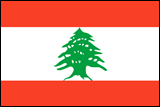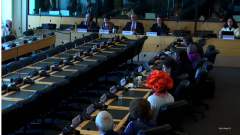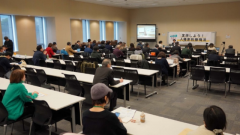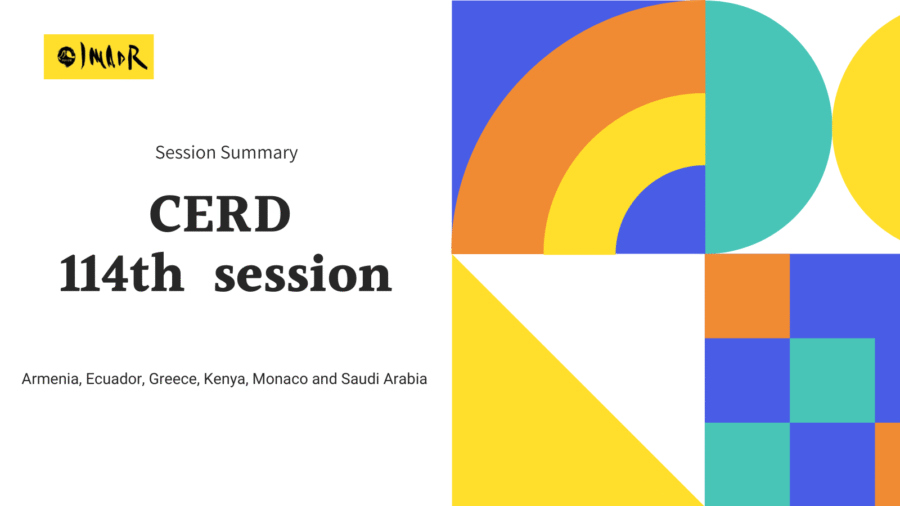CERD 104th session summary: Lebanon and the Netherlands
September 2, 2021
On the 25th of August, the UN Committee on the Elimination of Racial Discrimination (CERD) concluded its 104th session. In this session, the Committee adopted concluding observations on Lebanon and the Netherlands, and the list of issues prior to reporting (LOIPR) on India. It adopted the internal guidelines on the elaboration of General Recommendations.
In accordance with its follow-up procedure, The Committee issued follow-up letters to Colombia, El Salvador, Lithuania and Uzbekistan. Read our summary of the follow-up letters.
The Committee sent letters to Brazil, India, and the United States of America under its Early Warning and Urgent Action procedure.
Concluding observations, reports of the States parties and other stakeholders are available at the OHCHR website. Video archives of the public meetings can be accessed at UN Web TV.
Lebanon
 The Committee posed a wide range of questions to the State party such as the situation of migrant domestic workers, refugees, stateless persons, and legal and policy measures to combat racial discrimination including in the area of education. The Committee encouraged the State party to strengthen its domestic law by adopting anti-discrimination law and the definition of racial discrimination in line with the Convention. Regarding the justice system, the Committee raised a concern on additional fees required for non-nationals to access to court. The Committee requested data on court cases related to racial discrimination. The State party was asked to provide information on concrete measures taken to prohibit and punish racist hate speech. The Committee inquired about the status of the National Human Rights Commission concerning its independence, funding and mandate to handle complaints of racial discrimination. The State party was requested to update the information on the National Human Rights Action Plan. The equal access to education for non-citizens, in particular for refugee children, was examined. The Committee asked the State party how it ensured the teaching of human rights education in line with Article 7 of the Convention in all schools. The Committee expressed concerns on the exploitative conditions faced by migrant domestic workers such as the kafala system, the confiscation of passports and restrictions on their freedom of movement. The Committee urged the State party to resume the efforts to reform the Standard Unified Contract for migrant domestic workers. On the issue of human trafficking, the State party was requested to provide data on convictions of perpetrators and redress for victims. While acknowledging the State party’s challenge in hosting a significant number of refugees, in particular Palestinian and Syrian refugees, the Committee expressed concerns on their access to basic services, right to work and freedom of movement, as well as on the refugee status determination (RSD) procedure and the respect of the principle of non-refoulement. The Committee asked the State party to respond to allegations of torture against Syrian refugees in detention centres. The State party was encouraged to modify the nationality law to allow Lebanese mothers married to non-nationals to pass on their nationality to children and to take measures to prevent statelessness of all children. The Committee invited the State party to improve the marriage and birth registration procedures to ensure non-Lebanese couples’ registrations. Concerning the COVID-19 pandemic, the Committee asked the State party how it ensured the equal access to healthcare including vaccines for non-nationals. In response to the draft bill recently tabled at the parliament, the Committee stressed that all victims of the Beirut explosion should be entitled to remedies and humanitarian aids. Read more (English/ French). In its concluding observations, the Committee issued recommendations concerning following areas (*Recommendations with asterisks [*] are one-year follow-up recommendations.):
The Committee posed a wide range of questions to the State party such as the situation of migrant domestic workers, refugees, stateless persons, and legal and policy measures to combat racial discrimination including in the area of education. The Committee encouraged the State party to strengthen its domestic law by adopting anti-discrimination law and the definition of racial discrimination in line with the Convention. Regarding the justice system, the Committee raised a concern on additional fees required for non-nationals to access to court. The Committee requested data on court cases related to racial discrimination. The State party was asked to provide information on concrete measures taken to prohibit and punish racist hate speech. The Committee inquired about the status of the National Human Rights Commission concerning its independence, funding and mandate to handle complaints of racial discrimination. The State party was requested to update the information on the National Human Rights Action Plan. The equal access to education for non-citizens, in particular for refugee children, was examined. The Committee asked the State party how it ensured the teaching of human rights education in line with Article 7 of the Convention in all schools. The Committee expressed concerns on the exploitative conditions faced by migrant domestic workers such as the kafala system, the confiscation of passports and restrictions on their freedom of movement. The Committee urged the State party to resume the efforts to reform the Standard Unified Contract for migrant domestic workers. On the issue of human trafficking, the State party was requested to provide data on convictions of perpetrators and redress for victims. While acknowledging the State party’s challenge in hosting a significant number of refugees, in particular Palestinian and Syrian refugees, the Committee expressed concerns on their access to basic services, right to work and freedom of movement, as well as on the refugee status determination (RSD) procedure and the respect of the principle of non-refoulement. The Committee asked the State party to respond to allegations of torture against Syrian refugees in detention centres. The State party was encouraged to modify the nationality law to allow Lebanese mothers married to non-nationals to pass on their nationality to children and to take measures to prevent statelessness of all children. The Committee invited the State party to improve the marriage and birth registration procedures to ensure non-Lebanese couples’ registrations. Concerning the COVID-19 pandemic, the Committee asked the State party how it ensured the equal access to healthcare including vaccines for non-nationals. In response to the draft bill recently tabled at the parliament, the Committee stressed that all victims of the Beirut explosion should be entitled to remedies and humanitarian aids. Read more (English/ French). In its concluding observations, the Committee issued recommendations concerning following areas (*Recommendations with asterisks [*] are one-year follow-up recommendations.):
- Definition of racial discrimination;
- Application of the Convention;
- National human rights institution*;
- National human rights plan*;
- Racist hate speech and hate crimes;
- Right to nationality;
- Birth registration*;
- Legal framework on asylum;
- Situation of non-citizens, asylum seekers and refugees;
- Domestic migrant workers;
- Access to justice for migrant workers;
- Complaints of racial discrimination; and
- Training, education and other measures to combat prejudice and intolerance.
Netherlands
 While welcoming a series of State party’s initiatives such as the plan to appoint a National Coordinator against Discrimination and Racism and the adoption of the National Action Plan on human rights, the Committee encouraged the State party to further strengthen its efforts to eliminate racial discrimination. Concerning domestic law, the Committee invited the State party to fully align the definition of racial discrimination with the Convention. The Committee requested detailed information on the justice system such as the statistics on hate crimes and the prison population, as well as court cases on racial discrimination. The Committee inquired about measures against racist hate speech including anti-Semitism and racism in sports. With regard to the COVID-19 pandemic, the Committee expressed concerns on the rise of anti-Asian hatred and challenges for ethnic minority students in learning. The Committee was concerned by the reports of racial profiling and asked the State party if a reporting mechanism was in place. The State party was urged to collect disaggregated data to realise substantive racial equality. The Committee sought information on human rights education, in particular the teaching of the Dutch colonial history. The Committee posed questions to the State party concerning discrimination in education such as the treatment of multilingual students, bullying, the overrepresentation of Roma children in schools for children with special needs, and the equal access to internship. The Committee paid a particular attention to the overseas territories and posed questions to the State party on the equal participation in decision-making processes, apology and reparations for past human rights violations. The Committee pointed out the limited mandate of the national human rights institution as well as the absence of anti-discrimination bureaus in the Caribbean parts. Questions concerning ethnic minorities included the issue of Black Pete, discrimination in employment, the representation in public and political bodies, and the International Decade for People of African Descent. The Committee encouraged the State party to enhance its measures against anti-Gypsyism and inquired on the non-recognition of Roma as a minority group. With regard to non-citizens, the Committee asked the State party to clarify on the withdrawal of Dutch nationality for terrorism charges, the discontinuation of the provision of interpreters in healthcare, the management of the civil integration programme, and to respond to the allegations of systematic detention and deportations of migrants. Concerns on multiple and intersecting forms of discrimination included the impact of the 2019 ban on face covering on Muslim women and the refugee status determination procedure for LGBTQIA+ asylum seekers. The Committee inquired about the State party’s plan to counter the disproportionate impact of climate change on indigenous peoples and minorities. Read more (English/ French). In its concluding observations, the Committee issued recommendations concerning following areas (*Recommendations with asterisks [*] are one-year follow-up recommendations.):
While welcoming a series of State party’s initiatives such as the plan to appoint a National Coordinator against Discrimination and Racism and the adoption of the National Action Plan on human rights, the Committee encouraged the State party to further strengthen its efforts to eliminate racial discrimination. Concerning domestic law, the Committee invited the State party to fully align the definition of racial discrimination with the Convention. The Committee requested detailed information on the justice system such as the statistics on hate crimes and the prison population, as well as court cases on racial discrimination. The Committee inquired about measures against racist hate speech including anti-Semitism and racism in sports. With regard to the COVID-19 pandemic, the Committee expressed concerns on the rise of anti-Asian hatred and challenges for ethnic minority students in learning. The Committee was concerned by the reports of racial profiling and asked the State party if a reporting mechanism was in place. The State party was urged to collect disaggregated data to realise substantive racial equality. The Committee sought information on human rights education, in particular the teaching of the Dutch colonial history. The Committee posed questions to the State party concerning discrimination in education such as the treatment of multilingual students, bullying, the overrepresentation of Roma children in schools for children with special needs, and the equal access to internship. The Committee paid a particular attention to the overseas territories and posed questions to the State party on the equal participation in decision-making processes, apology and reparations for past human rights violations. The Committee pointed out the limited mandate of the national human rights institution as well as the absence of anti-discrimination bureaus in the Caribbean parts. Questions concerning ethnic minorities included the issue of Black Pete, discrimination in employment, the representation in public and political bodies, and the International Decade for People of African Descent. The Committee encouraged the State party to enhance its measures against anti-Gypsyism and inquired on the non-recognition of Roma as a minority group. With regard to non-citizens, the Committee asked the State party to clarify on the withdrawal of Dutch nationality for terrorism charges, the discontinuation of the provision of interpreters in healthcare, the management of the civil integration programme, and to respond to the allegations of systematic detention and deportations of migrants. Concerns on multiple and intersecting forms of discrimination included the impact of the 2019 ban on face covering on Muslim women and the refugee status determination procedure for LGBTQIA+ asylum seekers. The Committee inquired about the State party’s plan to counter the disproportionate impact of climate change on indigenous peoples and minorities. Read more (English/ French). In its concluding observations, the Committee issued recommendations concerning following areas (*Recommendations with asterisks [*] are one-year follow-up recommendations.):
- Data collection;
- Definition and prohibition of racial discrimination;
- Implementation of anti-discrimination legislation;
- Racist hate speech and hate crimes*;
- Racism in sport;
- Racial profiling;
- Consideration of racist motive within criminal law*;
- Discrimination in education*;
- Discrimination in employment;
- Access to health care;
- Discrimination against minorities;
- Discrimination of people of African descent;
- Discrimination of Dutch citizens born in the Caribbean;
- Discrimination against Roma, Sinti, Travellers;
- Civic integration;
- Situation of refugees, asylum seekers and undocumented migrants;
- Climate change; and
- Underreporting of complaints against racial discrimination.
Early Warning and Urgent Action Procedure
 Brazil: Both communications are in follow-up to the letters sent on August 2020 and April 2021.
Brazil: Both communications are in follow-up to the letters sent on August 2020 and April 2021.
- The Committee sent a follow-up letter on the situation of indigenous peoples and Afro-Brazilians in the context of COVID-19. The Committee requested the State Party to provide information on: (a) the measures to ensure the indigenous peoples’ access to healthcare and vaccines, including for those living outside the official indigenous land; (b) the actions taken to include and consult with indigenous peoples in the decision making process on the measures against the pandemic; (c) the measures adopted to accurately register COVID-19 deceases, and to ensure the conduct of burials according to indigenous culture and traditions; (d) the investigations initiated on the incidents of police violence against Afro-Brazilians; (e) the measures adopted to prevent police violence against Afro-Brazilian; and (f) the actions taken to guarantee the full compliance with the ruling of the Supreme Court to ban police operations in communities of Rio de Janeiro during the pandemic.
- The Committee sent a follow-up letter on the situation of the infrastructure projects in the State of Mato Grosso, namely Highway BR-080 and small hydropower plants along the rivers “Rio das Mortes” and “Rio Cumbuco”, and its impact on Xavante and other indigenous peoples’ rights. The Committee requested the State party to provide information on: a) the reassessment by Institute of the Environment and Renewable Natural Resources (IBAMA) and the National Indian Foundation (FUNAI) of the Indigenous Component Study of highway BR080 project as well as the considerations of the Government based on this reassessment; b) the participation of and consultation with all Xavante indigenous communities; and c) the measures adopted or envisaged to amend the Interministerial Ordinance n° 60/2015.
 India: The Committee issued a letter concerning the land rights of the Scheduled Tribes of Lakshadweep in relation to the “Draft Lakshadweep Development Authority Regulation 2021”. The Committee requested the State party to provide information on: (a) the current status of the Regulation, including with regard to the alleged arbitrary powers to the Administration of the Union Territory to seize lands of the Scheduled Tribes of Lakshadweep; and (b) the measures adopted to guarantee the right to consultation and to fulfil the requirement of free, prior and informed consent of the Scheduled Tribes of Lakshadweep regarding the Regulation.
India: The Committee issued a letter concerning the land rights of the Scheduled Tribes of Lakshadweep in relation to the “Draft Lakshadweep Development Authority Regulation 2021”. The Committee requested the State party to provide information on: (a) the current status of the Regulation, including with regard to the alleged arbitrary powers to the Administration of the Union Territory to seize lands of the Scheduled Tribes of Lakshadweep; and (b) the measures adopted to guarantee the right to consultation and to fulfil the requirement of free, prior and informed consent of the Scheduled Tribes of Lakshadweep regarding the Regulation.
 United States of America: The Committee sent a letter on the situation of the Anishinaabe indigenous peoples in Minnesota and the impact of the expansion of a tar sands pipeline (“Line3”) project on them. The Committee requested the State party to provide information on measures taken to: (a) guarantee the right to consultation and to fulfil the requirement of free, prior and informed consent of the Anishinaabe indigenous peoples with regard to the project; (b) prevent any adverse impact of the project on the livelihood and the rights of the Anishinaabe indigenous peoples; (c) guarantee the right of the Anishinaabe indigenous peoples to an effective remedy for possible violations of their rights caused by the project; and (d) prevent violence against indigenous women and of excessive use of force against protesters. The Committee also requested the State party to provide details on the status of the treaties concluded between the Anishinaabe indigenous peoples and the Government of the United States of America.
United States of America: The Committee sent a letter on the situation of the Anishinaabe indigenous peoples in Minnesota and the impact of the expansion of a tar sands pipeline (“Line3”) project on them. The Committee requested the State party to provide information on measures taken to: (a) guarantee the right to consultation and to fulfil the requirement of free, prior and informed consent of the Anishinaabe indigenous peoples with regard to the project; (b) prevent any adverse impact of the project on the livelihood and the rights of the Anishinaabe indigenous peoples; (c) guarantee the right of the Anishinaabe indigenous peoples to an effective remedy for possible violations of their rights caused by the project; and (d) prevent violence against indigenous women and of excessive use of force against protesters. The Committee also requested the State party to provide details on the status of the treaties concluded between the Anishinaabe indigenous peoples and the Government of the United States of America.





